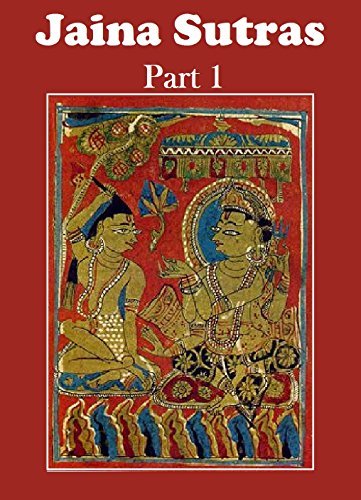Acaranga-sutra
by Hermann Jacobi | 1884 | 71,211 words | ISBN-10: 8120801237 | ISBN-13: 9788120801233
The English translation of the Acaranga Sutra, which represents the first the 12 Angas in Shevatambara Jainism. It is traditionally dated to the 5th-century BCE and consists of two parts containing lectures based on the teachings of Mahavira. Topics include: lifestyle of an ascetic: conduct, behavior, collecting alms, clothes, mode of walking and ...
Lecture 3, Lesson 4
That man (i.e. the liberated) conquers wrath, pride, deceit, and greed. This is the doctrine of the Seer who does not injure living beings and has put an end (to acts and to saṃsāra). Preventing propensity to sin destroys former actions. He who knows one thing, knows all things; and he who knows all things, knows one thing[1]. He who is careless in all respects, is in danger[2]; he who is not careless in all respects, is free from danger. (1)
He who conquers one (passion), conquers many; and he who conquers many, conquers one. ‘Knowing the misery of the world’ rejecting the connection with the world, ‘the heroes go on the great journey,’ they rise gradually; ‘they do not desire life.’ (2)
He who avoids one (passion), avoids (them all) severally; and he who avoids them severally, avoids one. Faithful according to the commandment (of the Tīrthakaras), wise, and understanding the world according to the commandment--such a man is without danger[2] from anywhere. There are degrees in injurious acts, but there are no degrees in control. (3)
He who knows[3] wrath, knows pride; he who knows pride, knows deceit; he who knows deceit, knows greed; he who knows greed, knows love; he who knows love, knows hate; he who knows hate, knows delusion; he who knows delusion, knows conception; he who knows conception, knows birth; he who knows birth, knows death; he who knows death, knows hell; he who knows hell, knows animal existence; he who knows animal existence, knows pain.
Therefore, a wise man should avoid wrath, pride, deceit, greed, love, hate, delusion, conception, birth, death, hell, animal existence, and pain.
This is the doctrine of the Seer, who does not injure living beings and has put an end (to acts and to saṃsāra). Preventing the propensity to sin destroys former actions. Is there any worldly weakness in the Seer? There exists none, there is none. Thus I say. (4)
End of the Third Lecture, called Hot and Cold.
Footnotes and references:
[1]:
Because true knowledge of one thing is inseparable from true knowledge of all things.
[3]:
And accordingly avoids wrath.
